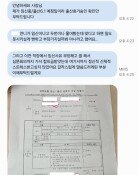Why No Resolution Against N. Korea?
The U.S. House of Representatives passed Tuesday a resolution denouncing North Koreas sinking of the South Korean naval vessel Cheonan and urging global countermeasures in an overwhelming 411-3 vote. Prior to this, Congress concluded May 13 that an external group was behind the Cheonan incident, and urged compliance of U.N. Security Council resolutions for the security of the Korean Peninsula before the announcement of the investigation results of the probe into the cause of the sinking by South Korean and foreign experts. Twenty-five countries including the U.S., Japan and Britain and international organizations such as the Organization of American States have issued announcements denouncing the North.
The National Assembly of South Korea, however, has produced no such resolution though two months have passed since the incident occurred and one week since the release of the investigation results. The ruling Grand National Party has failed to persuade the main opposition Democratic Party to agree on a resolution. Democratic Party floor leader Park Jie-won rejected such a resolution, saying, Even if North Korea was behind the sinking, many questions remain unsolved.
The main opposition party is trying to turn the June 2 local elections into a confrontation between war and peace, saying, We are at a crossroads between war and peace and chaos and stability. This is what former President Kim Dae-jung said in the 2007 presidential election. If Lee Myung-bak is elected president, war could break out, he warned. Sohn Hak-kyu, co-chairman of the Democratic Partys election committee, stoked fears in Gangwon Province Thursday by saying, If war breaks out, Gangwon Province will be reduced to ruin. Sohn branded the governments legitimate countermeasures against North Koreas provocation as a war-triggering act.
Right after the Cheonan sinking, the Democratic Party was busy defending North Korea. It is now glossing over its mistake with the claim that votes for the Grand National Party will lead to war. Under this situation, Lee Hoi-chang, chairman of the minor conservative Liberty Forward Party, has provided insight on inter-Korean tension. Were going through an inevitable situation on a path toward new inter-Korean relations and genuine peace on the Korean Peninsula, so the people must endure pain, he said. This comment is all the more meaningful since it was made by an opposition leader.
It is shameful for the South Korean parliament to have failed to denounce the culprit behind the Cheonan sinking, which claimed the lives of 46 crewmen, and to urge those responsible to apologize and get punishment. It is all the more shameful since the world is supporting South Korea. If the main opposition party continues to refuse a resolution, the ruling party and the Liberty Forward Party can adopt a resolution without the Democratic Partys support. Lawmakers who oppose or abstain from voting for the resolution will then leave an indelible stain on their reputations.
Headline News
- N. Korea launches cyberattacks on S. Korea's defense companies
- Major university hospital professors consider a day off each week
- Italy suffers from fiscal deficits from ‘Super Bonus’ scheme
- Inter Milan secures 20th Serie A title, surpassing AC Milan
- Ruling and opposition prioritize spending amid tax revenue shortfalls







